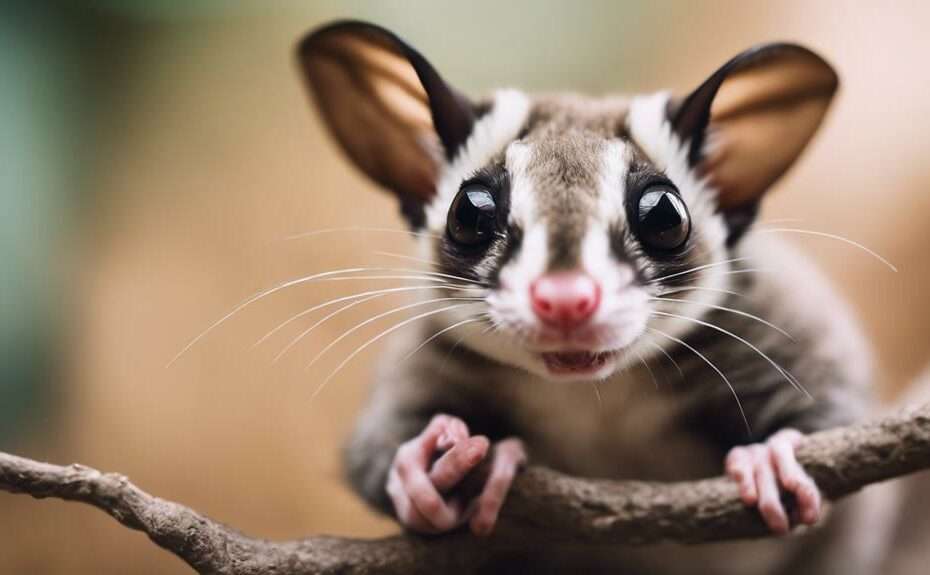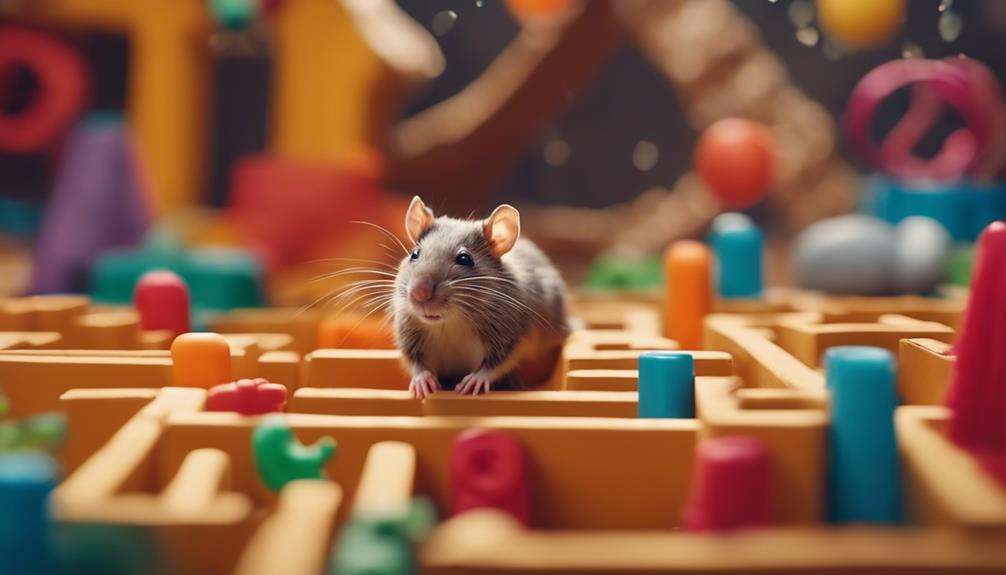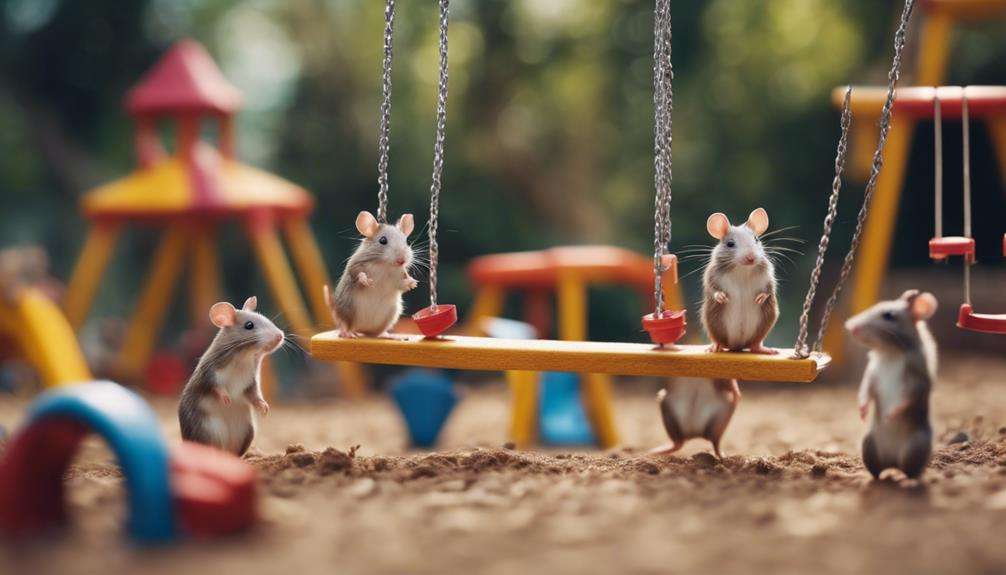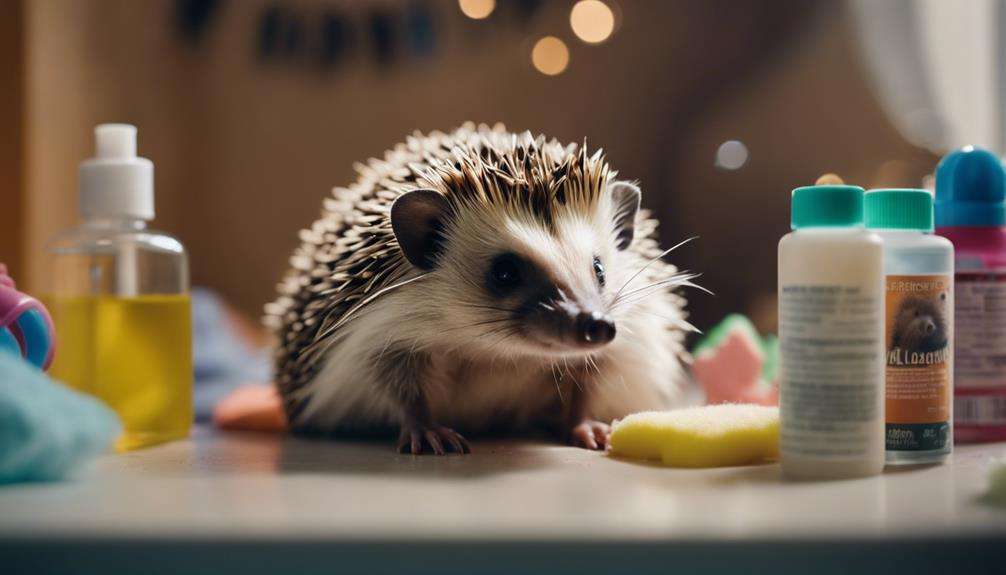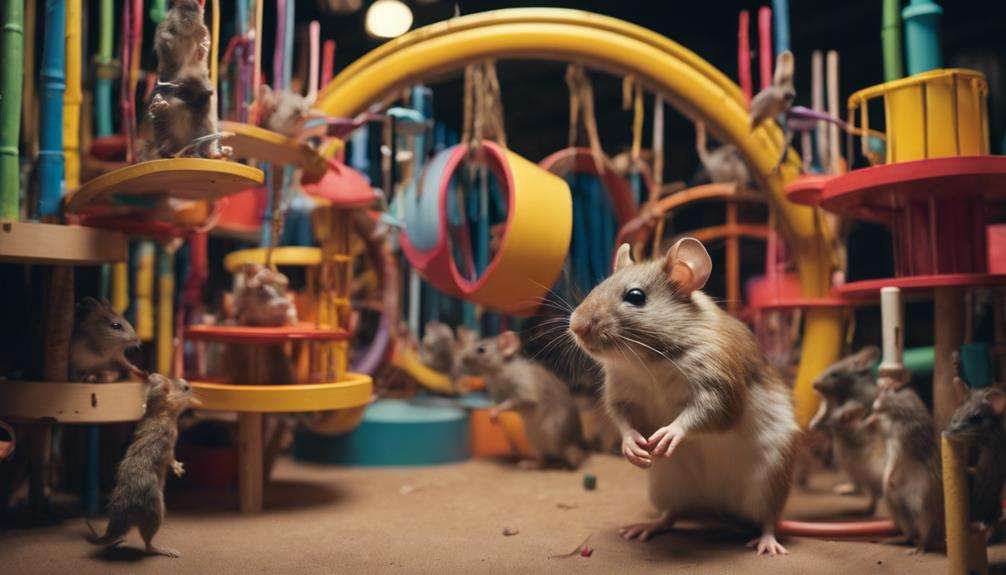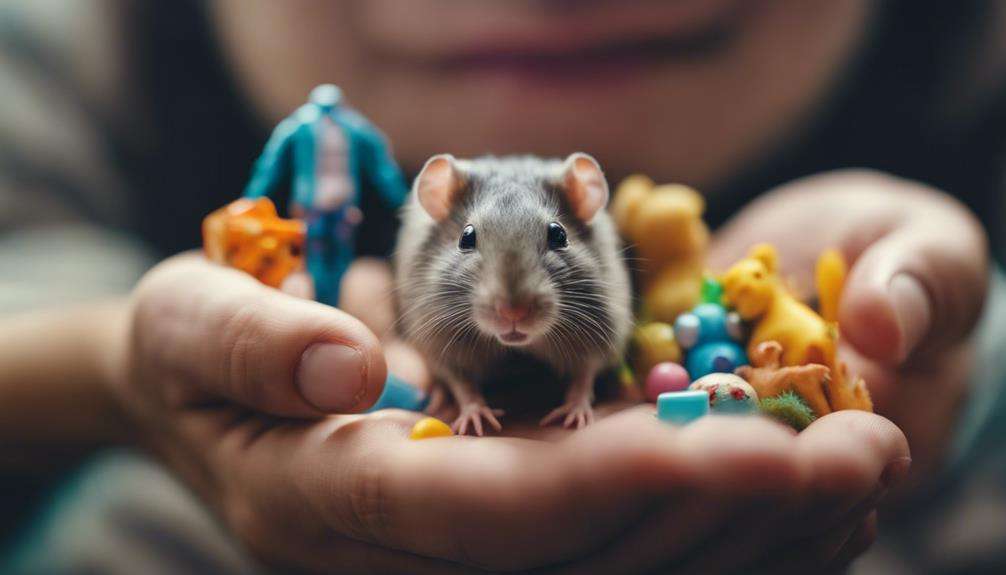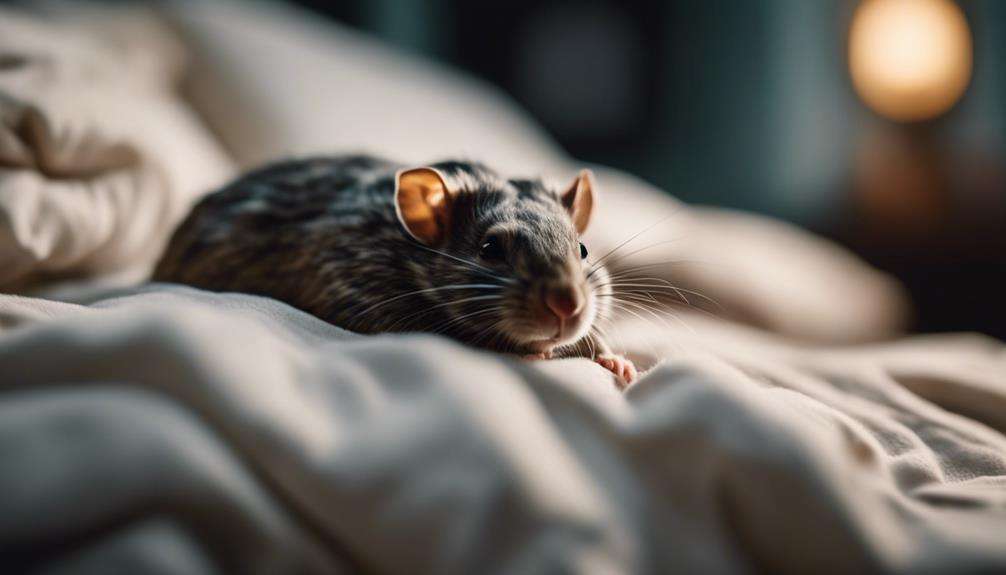If you're seeking a pet that marches to the beat of its drum, exploring the world of quirky rodents might just be the path for you.
From the acrobatic chinchilla to the social prairie dog, these unconventional companions offer a unique twist to the traditional pet ownership experience, bringing a touch of whimsy and novelty into your life.
Each of these critters possesses its own distinct charm and care requirements, making the journey of choosing the perfect quirky rodent both intriguing and rewarding.
Key Takeaways
- Chinchillas offer longevity and athleticism in a sociable pet.
- Sugar gliders provide unique gliding abilities and thrive on social bonds.
- Duprasi, or fat-tailed gerbils, enjoy companionship and interactive play.
- Degus need space, specific diet, grooming, and dental care for a fulfilling pet experience.
Chinchilla: A Fluffy and Adorable Companion
Being a fluffy and adorable companion, the chinchilla is a popular choice among pet enthusiasts for its gentle nature and low maintenance requirements. These large rodents, native to the Andes Mountains, are cherished for their soft fur and remarkable jump agility, capable of leaping up to five feet in a single bound. Chinchillas make excellent pets for older children or adults due to their calm demeanor and easy care routine. With a lifespan of up to 15 years or more, these furry friends offer long-term companionship and joy.
To ensure the happiness and well-being of your chinchilla, it's essential to provide them with a spacious enclosure equipped with enrichment activities. These activities not only keep them physically and mentally stimulated but also mimic their natural habitat, promoting a healthy lifestyle. By creating a stimulating environment for your chinchilla, you're fostering their overall wellness and ensuring a fulfilling companionship experience.
Sugar Glider: The Flying Pocket Pet
With its unique ability to glide through the air and endearing social nature, the sugar glider makes for an intriguing and affectionate companion. These flying marsupials are social animals that thrive on forming strong bonds with their owners, emphasizing the importance of keeping them in pairs for companionship.
To ensure their health and well-being, sugar gliders require a specialized diet that includes a mix of protein, vegetables, and fruits. Providing them with a large cage equipped with branches for climbing and plenty of space to move around and exercise is essential.
Regular interaction and playtime are crucial for the mental and physical enrichment of these unique pets. By engaging with them frequently, you can foster a deeper connection and create a fulfilling relationship with your sugar gliders. Consider the joy and companionship these charming creatures can bring into your life as you embark on this exciting journey of caring for sugar gliders.
Duprasi: The Desert Dwelling Cutie
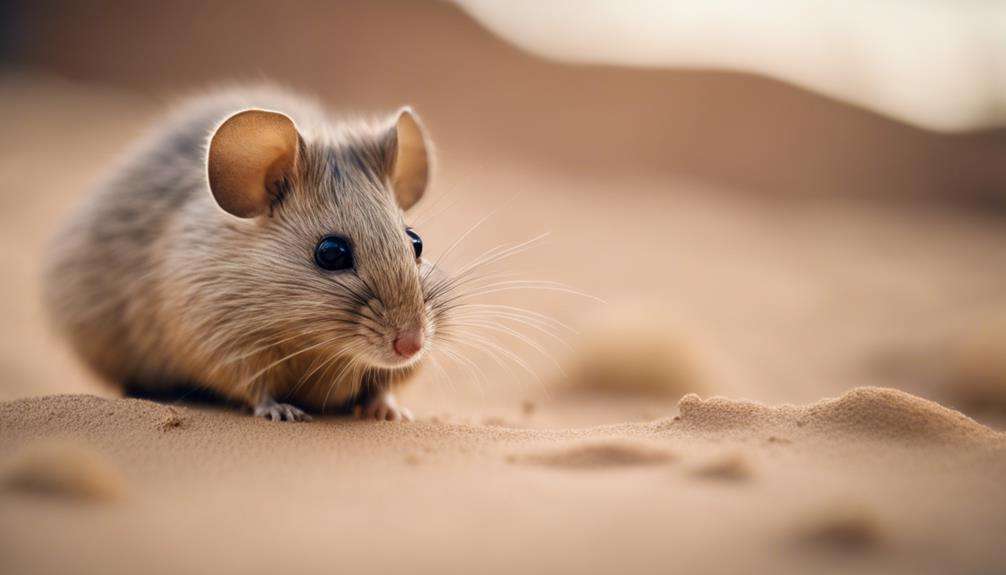
Duprasi, also known as fat-tailed gerbils, captivate with their unique appearance and endearing social nature. These small rodents are social animals that thrive in pairs or small groups, seeking companionship and mental stimulation. When considering Duprasi as pets, keep in mind that they're a long-term commitment, typically living up to four or five years. These cute rodents form strong bonds with their human caregivers, cherishing interaction and playtime. To ensure the well-being of Duprasi, providing a spacious enclosure filled with enrichment and toys is crucial.
- Distinctive Appearance: Duprasi have a fat, beaver-like hairless tail.
- Social Creatures: They prefer living in pairs or small groups for companionship.
- Long-Term Commitment: Duprasi can live up to four or five years.
- Bonding with Humans: These rodents enjoy interaction and playtime with their caregivers.
- Environmental Needs: Duprasi require a spacious enclosure with plenty of enrichment and toys for mental and physical stimulation.
Degu: The Social and Active Rodent
Degus, as social and active rodents, thrive on forming strong bonds with their human companions. These furry critters aren't only social but also require ample space to satisfy their active nature. Providing them with a spacious environment will allow them to play, explore, and interact with you, fostering those important bonds.
In terms of dietary needs, degus have specific requirements. Their diet should consist of a mix of hay, fresh vegetables, and the occasional treat to keep them healthy and happy. Additionally, regular dust baths are crucial for their grooming routine and overall well-being. These baths help them maintain clean fur and skin.
When it comes to dental care, degus need proper attention. Their teeth continuously grow, and chewing on appropriate items is essential to wear them down. By providing suitable chew toys, you can help keep their dental health in check and prevent any issues.
Prairie Dog: A Unique and Social Critter
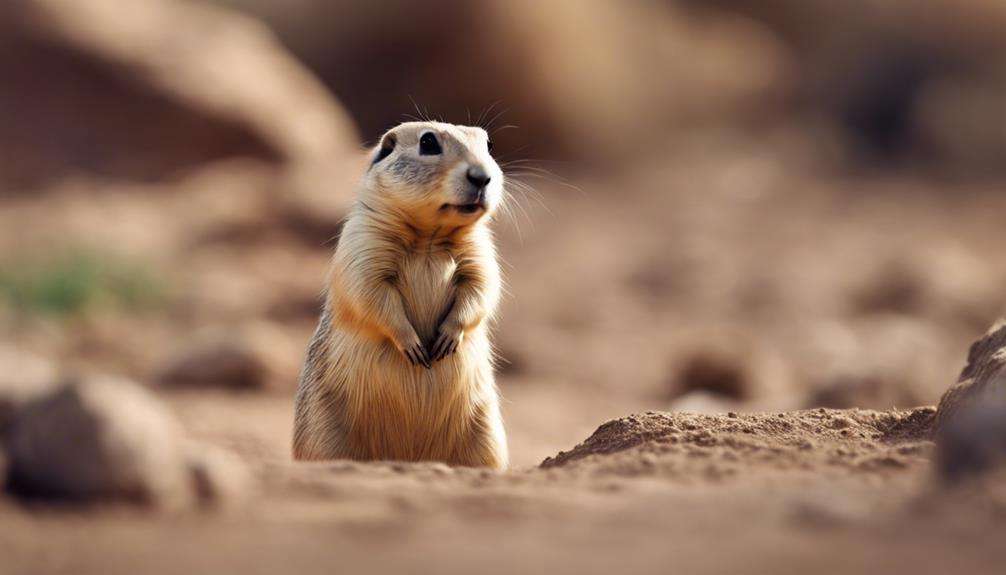
As you explore the world of quirky rodents as pets, the Prairie Dog stands out as a unique and social critter deserving attention for its fascinating characteristics and care requirements. Prairie dogs are large rodents, reaching lengths of 10 to 13 inches, and can live up to 12 years in captivity. To ensure their well-being, these quirky pets need at least 6 hours of playtime and interaction daily. Providing them with a spacious enclosure that accommodates their burrowing behavior is essential for their mental and physical health. When it comes to their diet, a mix of high-quality rodent pellets, grasses, vegetables, and fruits is crucial for their optimal nutrition.
Prairie dogs are larger rodents that can grow up to 10 to 13 inches in length. They have a lifespan of up to 12 years when kept in captivity. Prairie dogs require at least 6 hours of playtime and interaction daily to stay mentally and physically healthy. These critters need a spacious enclosure that allows for burrowing to mimic their natural behavior. Their diet should consist of a high-quality rodent pellet mix, grasses, vegetables, and fruit for optimal nutrition.
Frequently Asked Questions
What Is the Best Rodent to Have as a Pet?
When deciding on the best rodent as a pet, consider factors like temperament, care needs, and interaction level. Tiny hamsters, playful gerbils, curious chinchillas, friendly guinea pigs, active degus, adorable mice, and intelligent rats are popular choices.
What Is the Most Affectionate Rodent Pet?
For the most affectionate rodent pet, you'll find loving hamsters, cuddly guinea pigs, affectionate gerbils, playful rats, friendly mice, sweet sugar gliders, adorable chinchillas, social degus, loyal hedgehogs, and personable squirrels forming close bonds with their human families.
What Is the Best Unusual Pet?
For an unconventional pet, an exotic reptile like a chameleon can be a fascinating choice. Their unique ability to change color and quirky behaviors make them a captivating addition to your home.
What Unusual Animal Could Make a Great Pet?
You might want to explore exotic insects, miniature reptiles, unusual birds, exotic amphibians, tiny marsupials, pocket-sized primates, colorful crustaceans, unique arachnids, rare fish, or quirky invertebrates as unusual animal companions that can bring joy and fascination to your life.
Conclusion
As you embark on the journey of choosing a quirky rodent companion, remember that each one brings its own unique charm and personality to your life.
Just like the chinchilla's ability to leap to great heights, these pets have the power to bring joy and excitement into your home.
Embrace the adventure of caring for these special creatures, and watch as they hop, glide, or scurry their way into your heart.
